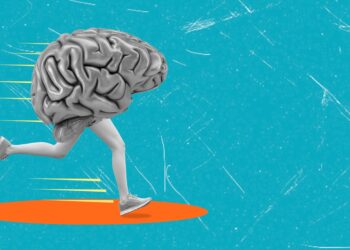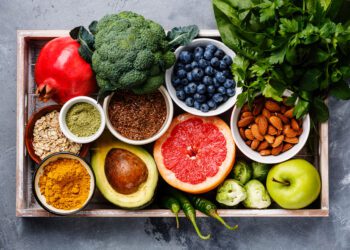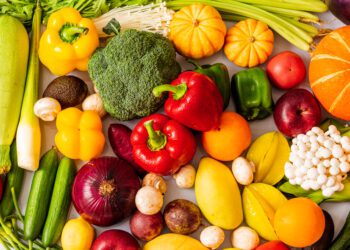Cancer is a broad term, which describes the disease that results when cellular changes cause the uncontrolled growth and division of cells. A cell receives instructions to die so that the body can replace it with a newer cell that functions better. Cancerous cells lack the components that instruct them to stop dividing and to die. As a result, they build up in the body, using oxygen and nutrients that would usually nourish other cells.
Cancerous cells can form tumors, impair the immune system and cause other changes that prevent the body from functioning regularly. Cancerous cells may appear in one area, and then spread via the lymph nodes. These are clusters of immune cells located throughout the body.
According to the WHO, the global cancer burden is estimated to have risen to 18.1 million new cases and 9.6 million deaths in 2018. One in 5 men and one in 6 women worldwide develop cancer during their lifetime and one in 8 men and one in 11 women die from the disease.
There are so many risk factors responsible for causing cancer. Besides biological, environmental and occupational risk factors, lifestyle-related factors also play a significant role in the development of various types of cancer.
Many of the factors potentially influencing our chance of developing cancer come from our lifestyle and our personal choices. This means that we have some control over our exposure to these factors. A number of modifiable lifestyle factors responsible for causing cancer are as follows:
Obesity
Globally, it is estimated that 3.6% of all new cancers in adults are attributable to excess bodyweight. Greater body fat has been identified as a probable cause of gallbladder, advanced prostate and ovarian cancers. There is convincing evidence that abdominal obesity increases the risk of colorectal cancer and endometrial cancer, and is a probable cause of pancreatic cancer.
Adult weight gain has been identified as a further probable cause of postmenopausal breast cancer. So, maintaining a healthy weight throughout life has clear health benefits and may have an important protective effect against cancer.
Physical inactivity
Globally, it has been estimated that 135,000 deaths from cancer each year are attributable to physical inactivity. Physical activity protects against certain cancers and also limits weight gain, itself a cause of some cancers.
To reduce risk of cancer, the adults should accumulate 150 to 300 minutes of moderate intensity physical activity or 75 to 150 minutes of vigorous intensity physical activity, or an equivalent combination of both moderate and vigorous activities, each week. Activity at the upper end of the scale i.e. 300 minutes of moderate or 150 minutes of vigorous is required for the prevention of unhealthy weight gain and some cancers. It is also recommended to minimize the amount of time spent in prolonged sitting and to break up long periods of sitting as often as possible.
Diet
Worldwide, it has been estimated that 374,000 cancer deaths each year can be attributed to low fruit and vegetable intake. A varied diet of nutritious foods, including vegetables, fruits, grains, dairy products, lean meat, fish and water and limiting intake of foods with saturated fat, added salt and added sugars is thus recommended. The standard dietary guidelines recommend consuming five servings of vegetables and two servings of fruit per day and limiting meat consumption to 455 g of lean meat per week, i.e. up to 65 g per day.
Tobacco consumption
The WHO identifies tobacco use as the single greatest avoidable risk factor for cancer mortality worldwide and estimates tobacco use to cause up to 1.5 million cancer deaths each year.
Tobacco smoke has an effect on the wider population through exposure to second-hand tobacco smoke. There is also a danger of third-hand smoke. It is the residue of nicotine and other chemicals in the tobacco, which clings to clothes, furniture, drapes, walls, bedding, carpets, dust, vehicles and other surfaces long after smoking has stopped. People are exposed to these chemicals by touching contaminated surfaces or breathing in the off-gassing from these surfaces.
Quitting smoking reduces the risk of lung and other major cancers. Five years after quitting smoking, the risk of mouth, throat, esophageal and bladder cancers is halved and the risk for dying from lung cancer drops by half after 10 years.
Quitting smoking can also contribute to both short and long-term improvements in health, including a drop in heart rate and blood pressure, improved circulation and lung function, and reduced risk of coronary heart disease and stroke. WHO reports that people of all ages, who have already developed smoking-related health problems, can also benefit by quitting smoking.
Alcohol consumption
The WHO has estimated that excess alcohol consumption is responsible for 351,000 cancer deaths internationally each year. The increased risk of cancer commences at a low level and increases with higher levels of alcohol consumption. When taken together, tobacco smoking and alcohol interact synergistically to increase the incidence of cancers of the upper gastrointestinal tract. Generally, it is considered safe to limit consumption to no more than two drinks a day for men and one drink a day for women.
UV radiation
According to the WHO, there were 65,000 melanoma-related deaths internationally in 2000. There is strong evidence that UV-emitting tanning devices (solaria) cause melanoma of the skin and eye and are positively associated with squamous cell skin carcinoma. An increased melanoma risk is associated with solaria use before the age of 30. An adequate use of sunscreen and protective attire are thus encouraged.
Infections
Globally, an estimated 16.1% of new cancers are attributed to infections. However, estimates vary greatly between regions. According to the World Cancer Report 2008, human papilloma virus, helicobacter pylori, and hepatitis B and C viruses have been identified as the principal infectious agents, accounting internationally for 6.1%, 5.4% and 4.3% of all cancer cases respectively. They cause together 1.9 million cancer cases worldwide.
Therefore, taking adequate preventive measures will go a long way in preventing development of many cancers.
It has been observed worldwide that incidences of all types of cancers have been steadily increasing, for which a large number of risk factors are responsible. Regardless of all other risk factors, our lifestyle is responsible for the development of many types of cancers. It is worth knowing that most of our lifestyle factors are modifiable. By modifying them appropriately, we can stop the development of many cancers.
By Dr. Pran Rangan












